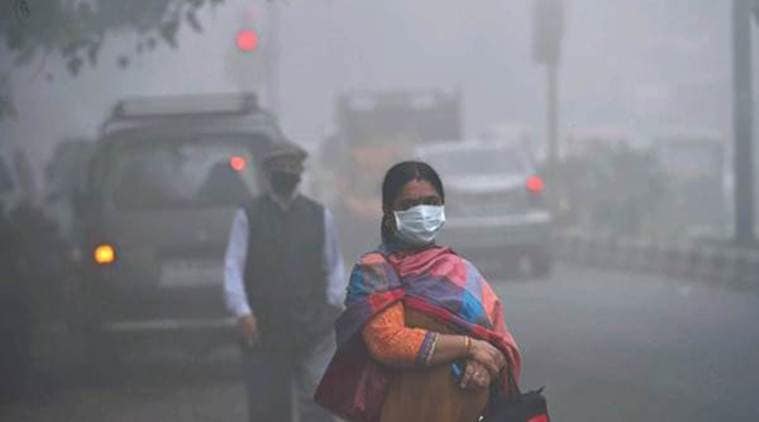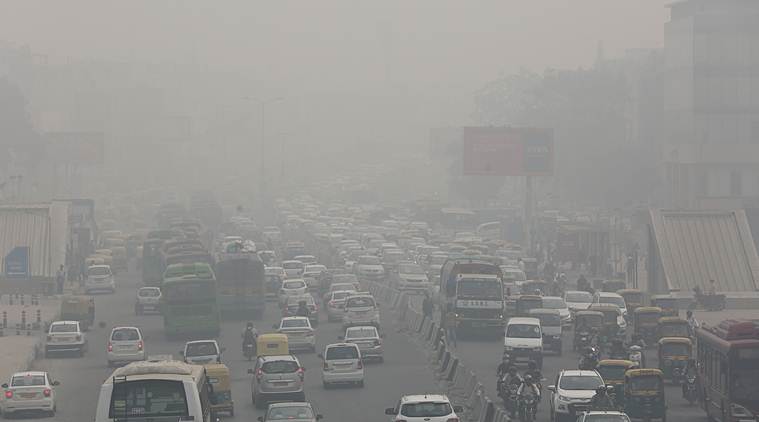 A woman wears an anti-pollution mask as smog covers the capital’s skyline. (File)
A woman wears an anti-pollution mask as smog covers the capital’s skyline. (File)
Delhi was engulfed in haze on Wednesday morning, with the air quality index (AQI) recorded in ‘poor’ category, an improvement from Tuesday’s levels though. The overall air quality index was recorded at 268, which falls in the ‘poor’ category, according to data by the Central Pollution Control Board. On Diwali eve, the AQI was recorded at 394, which falls in the ‘very poor’ category.
While PM 2.5 level was recorded at 134, PM 10 level stood at 276 in Delhi. Officials said the air quality is expected to dip further due to reduced wind speed and increase in pollutants from stubble burning. The Supreme Court has given a timeframe of two hours (8 pm-10 pm) for bursting crackers and has allowed only ‘green firecrackers’ to be used on Diwali.
Moving to South India, which celebrated Diwali on Tuesday, the overall air quality was significantly better and was in the ‘moderate’ category. The air quality index in Chennai was recorded at 103, while in Bangalore it was 90 and Thiruvananthapuram had an AQI of 89. A private weather forecaster predicted that light to moderate rainfall is expected over Tamil Nadu and Kerala, which would further improve the air quality.
 Traffic at South Extension as Delhi witnessed a significant rise in smog and pollution on Monday. (File)
Traffic at South Extension as Delhi witnessed a significant rise in smog and pollution on Monday. (File)
The Central Pollution Control Board (CPCB) Tuesday recommended a ban on the entry of trucks, carrying non-essential commodities, into Delhi between Thursday and Saturday. A ban on construction activities in the city is already underway, as part of the Graded Response Action Plan (GRAP) to control pollution in Delhi and NCR.
The Indian Institute of Tropical Meteorology said shallow fog and haze is expected to prevail during daytime on Wednesday and Thursday, it said. "The increase in PM2.5 concentration is due to change in wind direction, decrease in wind speeds and contribution from biomass burning," the IITM said. Meanwhile, about 9 per cent of PM 2.5 pollution in Delhi was caused due to stubble burning, according to the Centre-run System of Air Quality Forecasting and Research (SAFAR).
In bad news for Delhiites, SAFAR said the air quality is expected to deteriorate to 'severe plus emergency' category after Diwali. "Even if 50 per cent of the total load of toxic firecrackers as compared to Diwali 2017 is added, the prevailing weather conditions will aggravate the high smoke level and make air quality to persist in severe range for at least two days on November 8 and November 9," SAFAR said in a report. PM 10 concentration is expected to reach 575 and PM 2.5 to 378 a day after Diwali, recording the worst air quality of the year, it said.